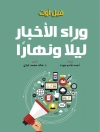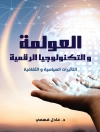In the world of online dating, race-based discrimination is not only tolerated, but encouraged as part of a pervasive belief that it is simply a neutral, personal choice about one’s romantic partner. Indeed, it is so much a part of our inherited wisdom about dating and romance that it actually directs the algorithmic infrastructures of most major online dating platforms, such that they openly reproduce racist and sexist hierarchies. In Not My Type: Automating Sexual Racism in Online Dating, Apryl Williams presents a socio-technical exploration of dating platforms’ algorithms, their lack of transparency, the legal and ethical discourse in these companies’ community guidelines, and accounts from individual users in order to argue that sexual racism is a central feature of today’s online dating culture. She discusses this reality in the context of facial recognition and sorting software as well as user experiences, drawing parallels to the long history of eugenics and banned interracial partnerships. Ultimately, Williams calls for, both a reconceptualization of the technology and policies that govern dating agencies, and also a reexamination of sociocultural beliefs about attraction, beauty, and desirability.
Table des matières
Introduction
1. A New Sexual Racism?
2. Automating Sexual Racism
3. I’m Just Not Comfortable with Them: The Myth of Neutral Personal Preference
4. I’ve Always Wanted to Fuck a Black or Asian Woman: Being Racially Curated in the Sexual Marketplace
5. Safety Thirst: Who Gets to Be Safe While Dating Online?
Conclusion: All You Need Is Love (and Transparency, Trust, and Safety)
A propos de l’auteur
Apryl Williams is a jointly appointed Assistant Professor at the University of Michigan in the Department of Communication & Media and the Digital Studies Institute. She is also a Senior Fellow in Trustworthy AI at the Mozilla Foundation and a Faculty Associate at Harvard University’s Berkman Klein Center for Internet and Society. Her research has been published in
Big Data & Society,
Ethnicities,
Sociology of Race and Ethnicity, and
Social Media & Society, among others.












